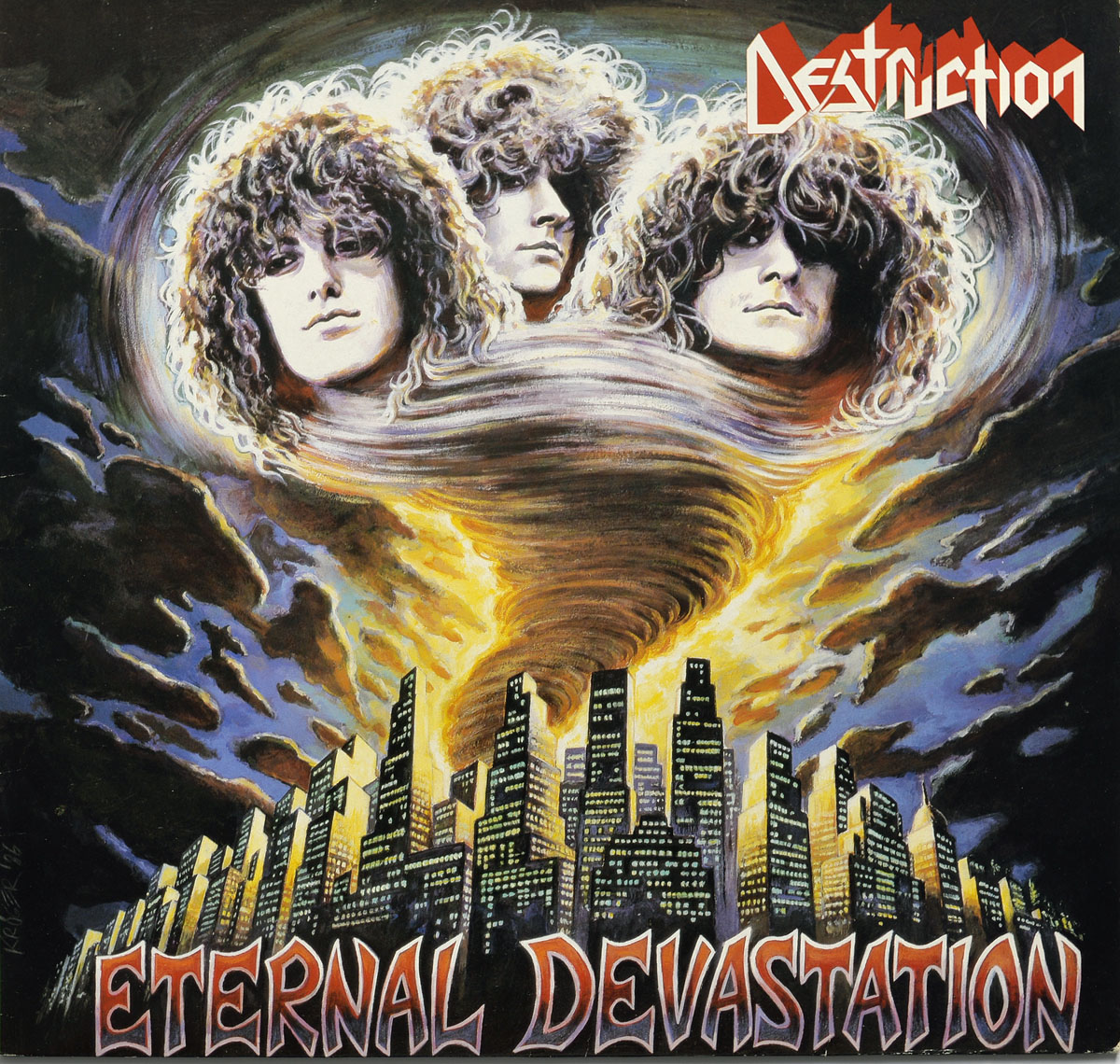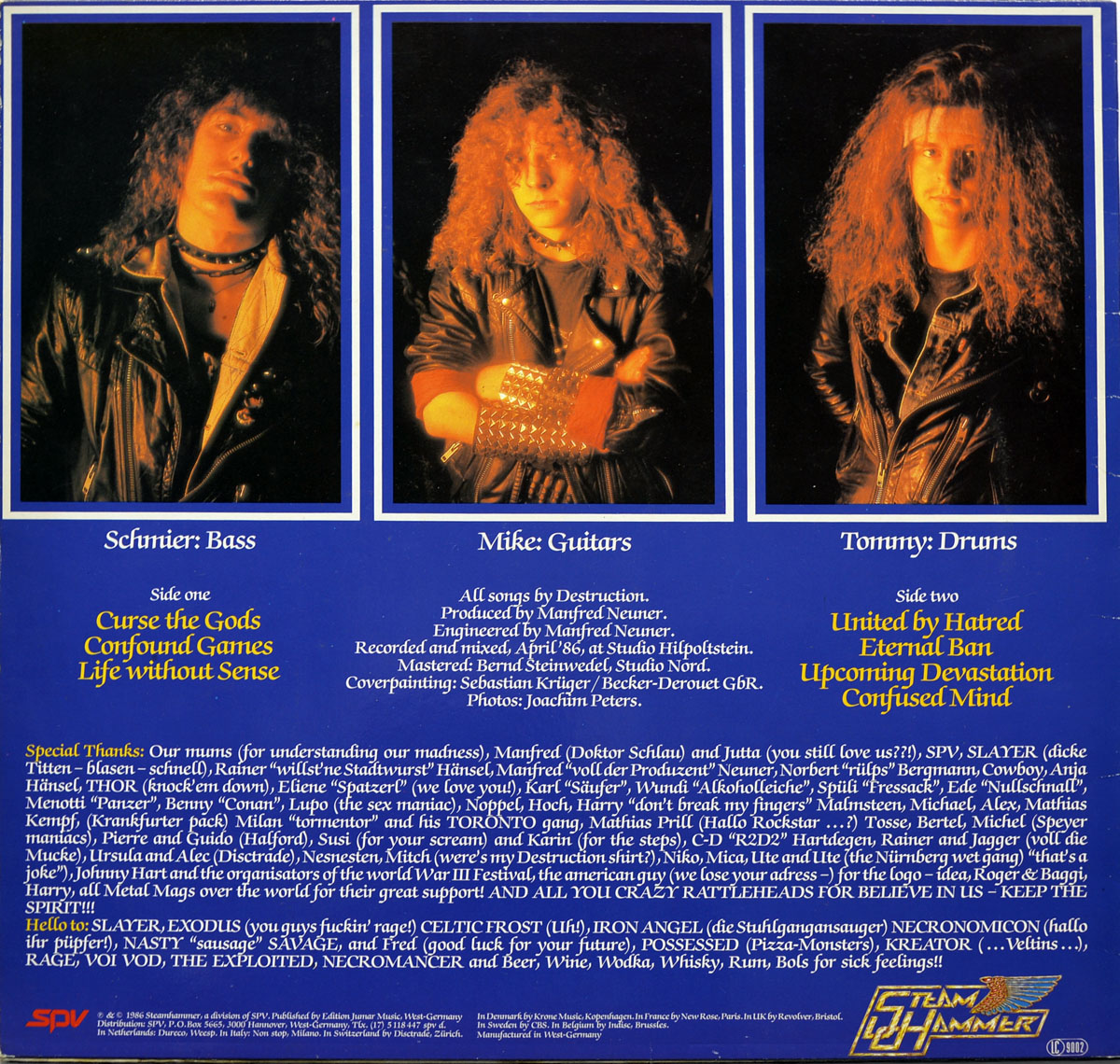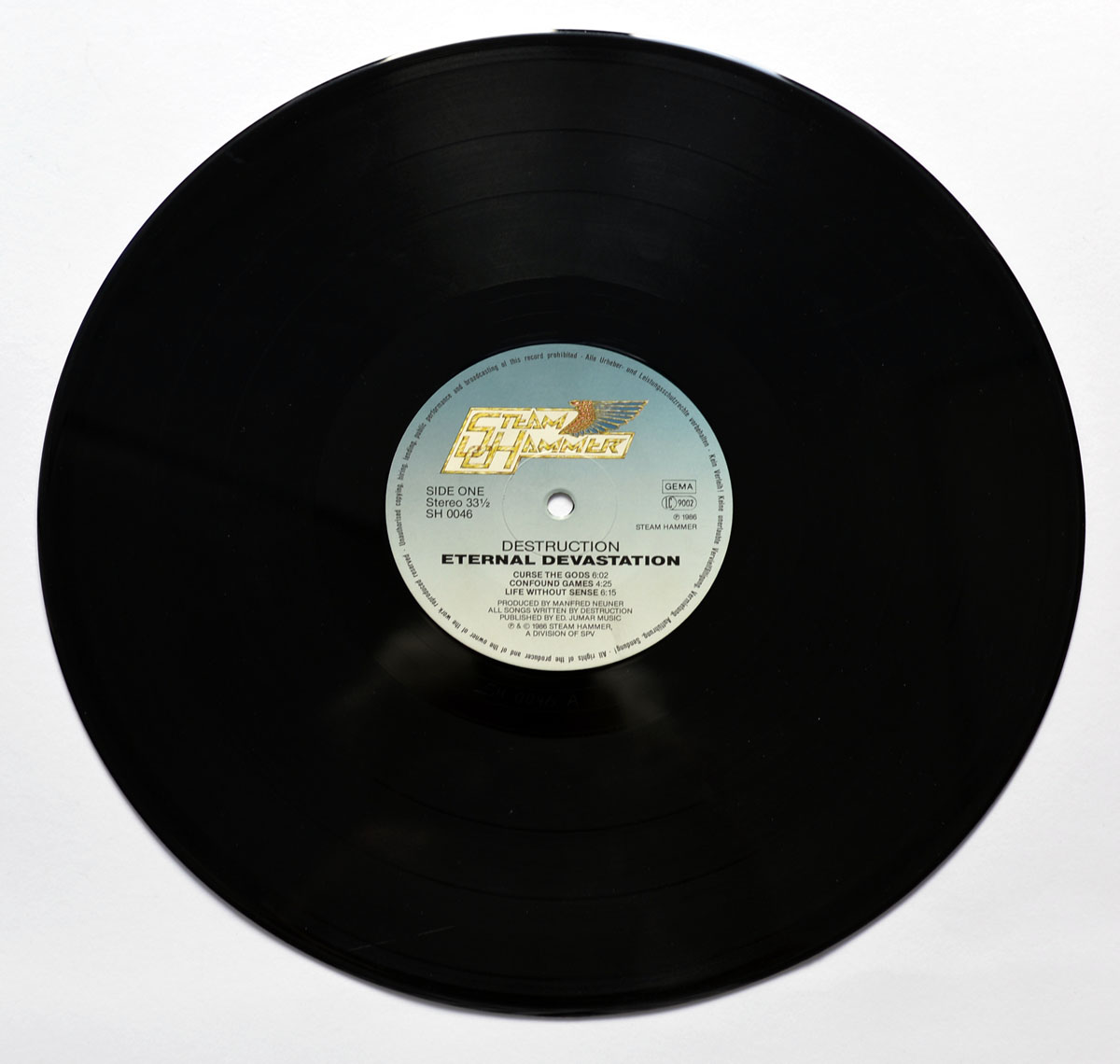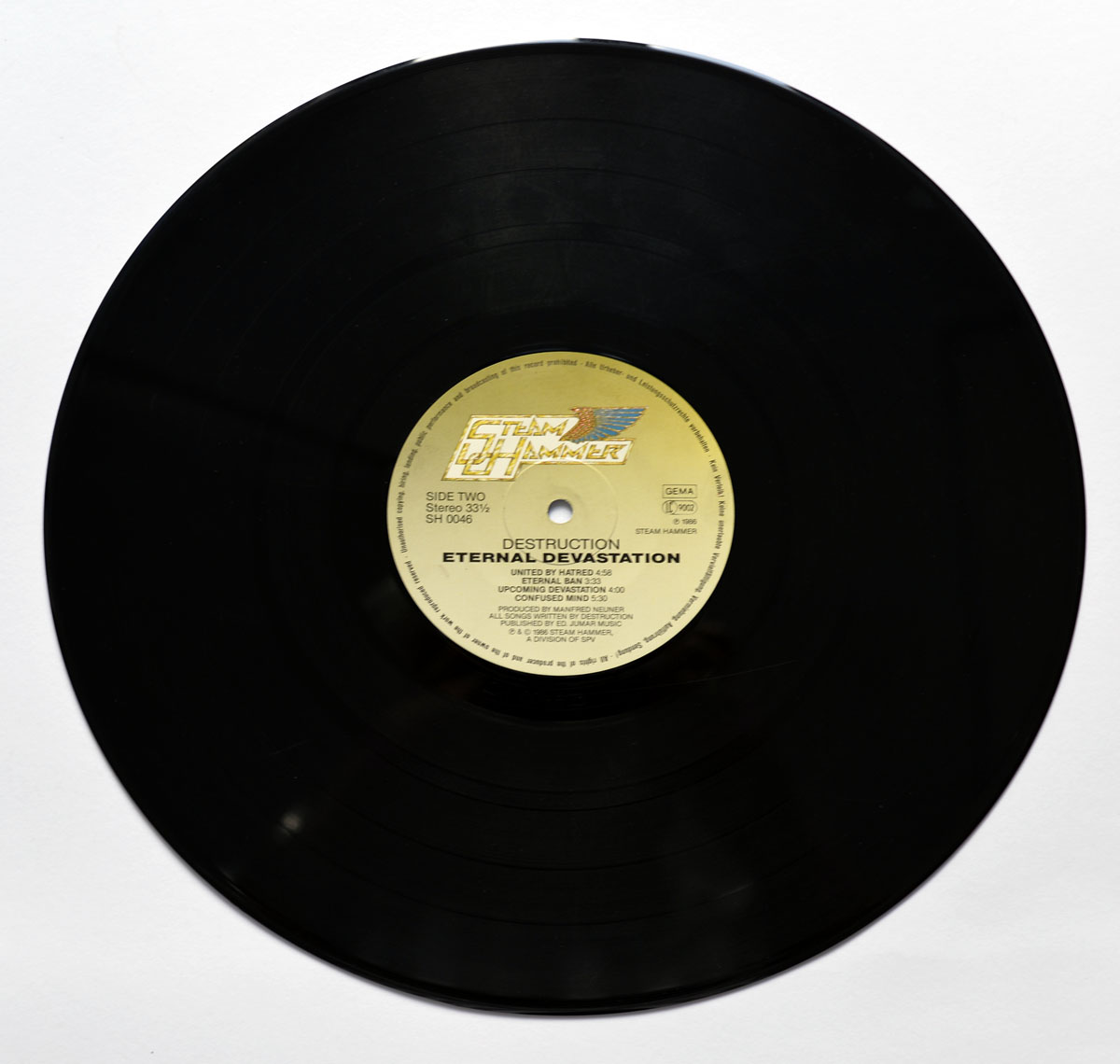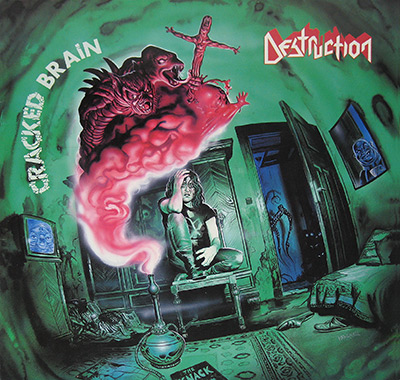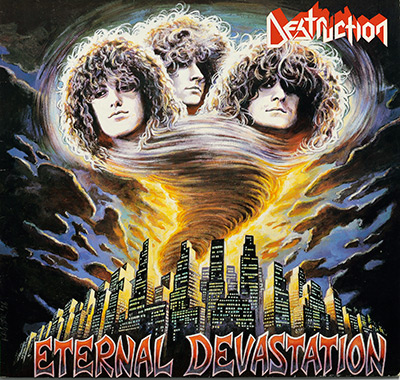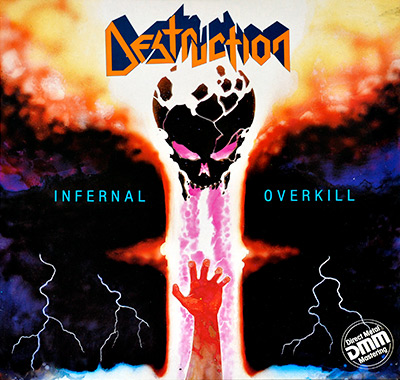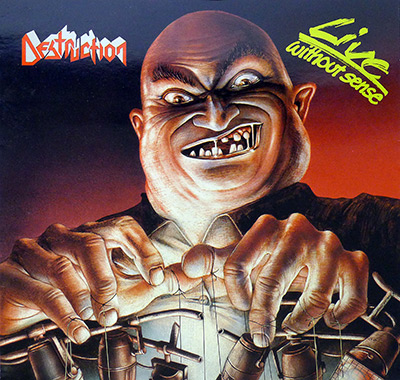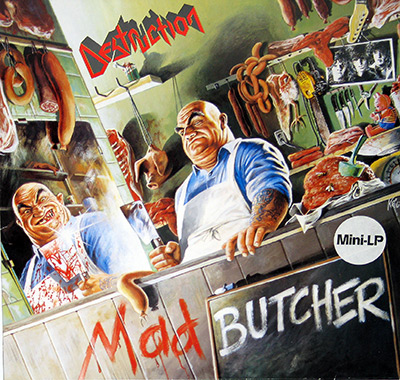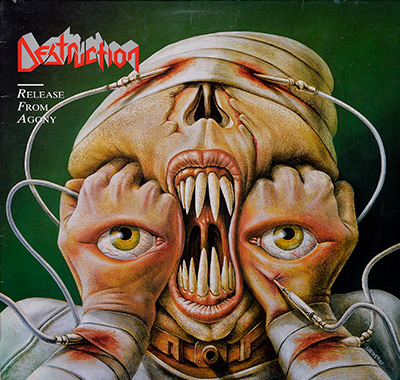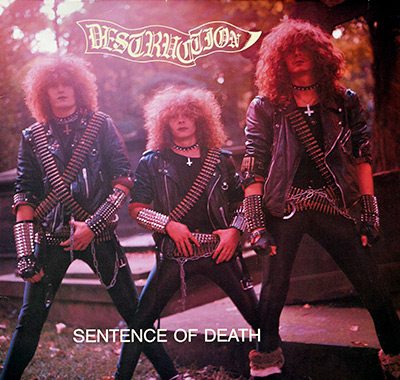The back cover of Eternal Devastation by Destruction features three individual portrait photos of the band members against a black background, each framed in blue with a white border. From left to right, the members are labeled as follows:
Schmier: Bass, with a confident stance and wearing a leather jacket and choker.
Mike: Guitars, exuding intensity with his arms crossed, adorned with spiked leather bracelets and a studded jacket.
Tommy: Drums, standing assertively, dressed in leather with his long hair cascading over his shoulders.
The bottom half of the cover provides production credits, a list of special thanks, and various acknowledgments. The credits mention that the album was produced by Manfred Neuner and recorded and mixed in April 1986 at Studio Hilpoltstein. The layout includes additional shoutouts to fans, bands, and contributors, delivered in a casual and energetic tone.
At the bottom-right corner, the Steamhammer logo is prominently displayed, emphasizing the band’s connection to the label. The layout design mirrors the era’s thrash metal aesthetic, with its straightforward presentation and emphasis on the band’s raw energy and personality.
